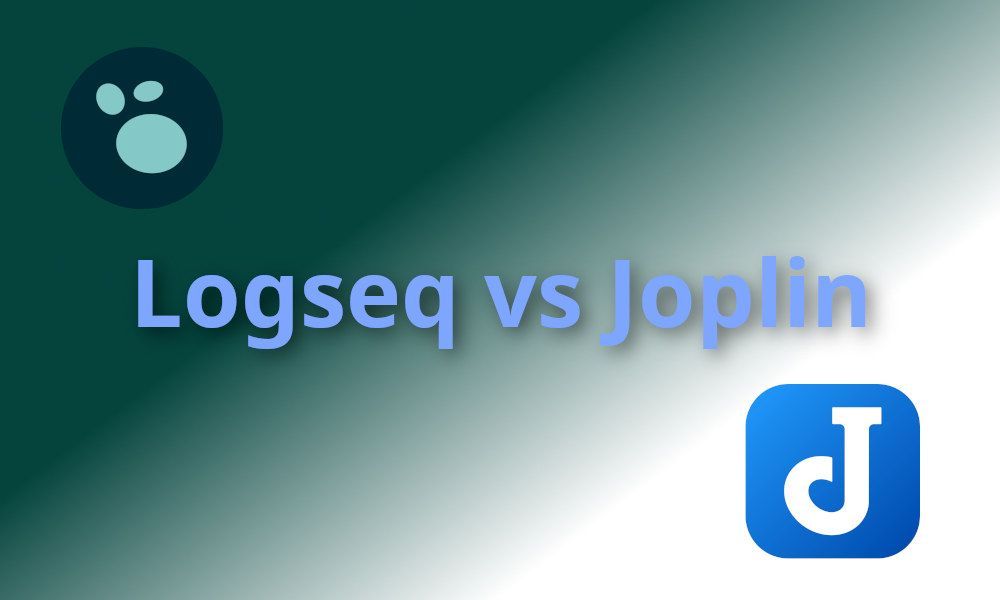LogSeq vs Joplin

After trying to use Logseq for the past 2 years, I've decided to switch to Joplin.
Main differences
Logseq puts daily journaling first. Every time you open Logseq, it starts with a new page for today's date. This promotes a “jotting” workflow, where you start by jotting down brief notes which can then be linked to further details elsewhere.
Another big feature of Logseq is the visual graph view – a dynamic node-network of all entries and their relationships. A kind of “mindmap” style visualizer for all your content.
Joplin, on the other hand, is a more of a rich-text (markdown) editor combined with traditional tree organizer plus tags.
Not for Me
While I appreciated the graph-view of Logseq, the journaling/jotting workflow just wasn't for me. If you enjoy journaling, then Logseq will probably be up your alley.
In terms of UI, Logseq also seemed to rely heavily on markdown and use of an extensive command pallete. Joplin has a command pallete too, but users who aren't inclined to use it can get by completely without it. In fact, I'm using Joplin right now as a markdown editor, with live view, to draft this post.
Sync
But the straw that broke the camel's back for me, was trying to sync Logseq across multiple devices. I already use Nextcloud for my cloud-sharing needs, but somehow Logseq just never could sync correctly between desktop and mobile (Android).
Might have something to do with Logseq's business model of selling their own cloud-sync service.
Joplin has native sync support for Nextcloud, as well as S3 and generic WEBDAV. You also have the option of paying for their premium cloud-sync service if you're not inclined to host your own.
Perfect.
Conclusion
Ultimately, Loqseq seems to serve a more specific audience, oriented towards journaling and mind-mapping. Joplin is pretty typical of what most people imagine a note-taking app to be, plus nice creature comforts and self-hosting support.